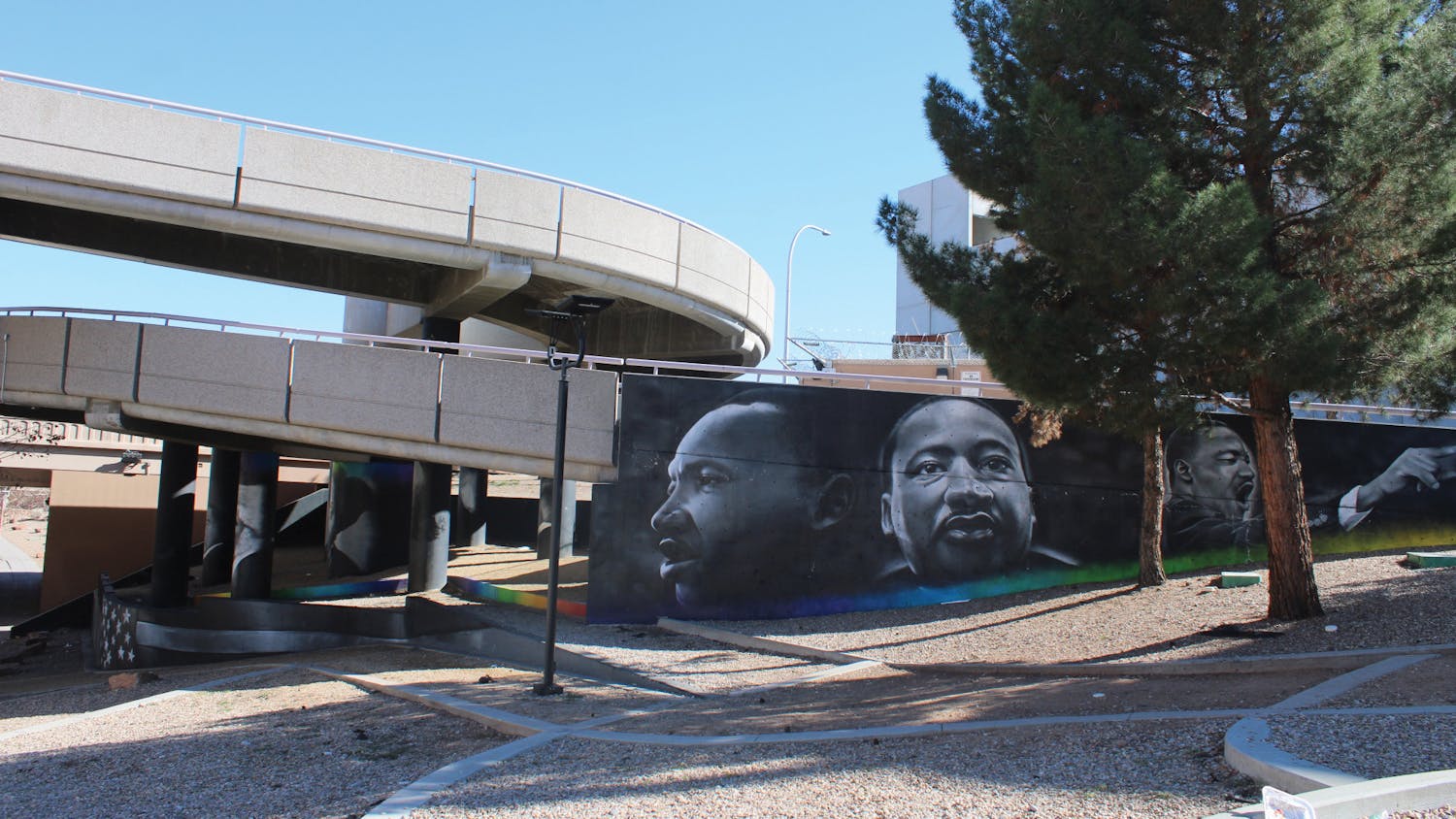In Lana Del Rey’s new album, “Did you know that there’s a tunnel under Ocean Blvd,” released on March 24, she insists we are wrong about her. Del Rey embodies an attitude that succeeds in representing the violence and anxieties of girlhood, but fails to respond to her history of cultural appropriation. She fills 1 hour and 17 minutes with conflicted representations of family, memory and legacy.
Her song “Grandfather please stand on the shoulders of my father while he’s deep-sea fishing,” the 11th song on the album, begins by confronting common claims about her manufactured identity into her lyricism: “I know they think that it took somebody else to make me beautiful … but they’re wrong.”
Del Rey has faced allegations that her identity was an idea rather than reality created by her father’s team of marketers and Lizzy Grant, the singer’s given name, according to the Washington Post. Del Rey disagreed, arguing that she isn’t an “experiment (of) some big men behind the scenes sewing Frankenstien black dreams into my songs.” She skillfully asserts her place as a talented songwriter and creator, contesting these claims that others orchestrated her success.
The middle of ”Grandfather please” is answered with awkward lyricism that seems to respond to continuous claims of cultural appropriation throughout her career: “I’m folk, I’m jazz, I’m blue, I’m green. Regrettably, also a white woman.” Del Rey’s lyrics don’t offer any thought into her past actions, creating an empty sentiment, carelessly enforcing the idea that she is uninterested in engaging with any criticism.
Del Rey has priorly worn a Native American headdress and depicted herself as a “Lolita (that) got lost in the hood,” according to Harper’s Bazaar. Her 2020 self-written note titled, “Question for the culture” contrasted her music to the music of a group of primarily black women, claiming that she was making music about “love” while artists like Nicki Minaj and Doja Cat “had number ones with songs about being sexy, wearing no clothes, fucking, cheating.”
She also differentiated herself from other women, as she claims she’s not like other girls and continues in “Grandfather please” that she has “good intentions even if (she’s) one of the last ones,” insinuating that other women don’t and that her intentions outweigh her impact — no matter how harmful. Del Rey isn’t a fleeting higher being captured through poetic lyricism: it’s just another name for Lizzy Grant. She is responsible for the creation of her character — both her lyrical and artistic success, and highly disrespectful depictions.
The aspects of Del Rey’s album that describe compelling emotions portray her relationship to family, legacy and motherhood. Many of her lyrics mull over her future and inevitable death. She opens the album with a nod to herself as Lizzy and her family with the song titled “The Grants.” She stroked a sentimental note, singing about how she will take memories with her after she dies: “My grandmother's last smile, I’m gonna take that too with me … Remember that too for me.”
Del Rey is thinking about the importance of memory throughout the album, specifically how she will be remembered. Her lyrics throughout the album that relate to legacy are soothingly personal and allow her audience to understand Del Rey’s relationship to her family and the image she has created in the media. She focuses specifically on the importance of memory, providing an intimate and powerful description of her fear of forgetting.
In the title track “Did you know there’s a tunnel under Ocean Blvd,” Del Rey asks if you knew about a tunnel of “mosaic ceilings, painted tiles on the wall.” She repeats this question almost as often as she tells her audience, “Don’t forget me,” relating her own memory with that of a human-made tunnel. Her lyrics are captivating, similar to her earlier work, as she uses a “poetic” tone to invoke mystery, illusion and glamour.
Del Rey continues themes of personal memory through self-referential lyricism in “Let The Light In.” She slightly changes lyrics from her old songs like “Music to Watch Boys to” off her album “Honeymoon” and “Love Song” from “Norman Fucking Rockwell!” The trend continues as she ends her the album with “Taco Truck x VB” which samples “Venice Bitch” off “Norman Fucking Rockwell!”
These references are exciting for lifelong fans of Del Rey’s work who have independent relationships with the lyrics she updates and remixes. But they also suggest that she is consistently editing and changing her past work, creating a discography that transcends its initial significance.
Get content from The Daily Lobo delivered to your inbox
Her album, “Did you know there’s a tunnel under Ocean Blvd” combines ideas of womanhood, aging and fame with compilations of her past work. The album offers an affectionate depiction of the process of “becoming a woman,” specifically under constant scrutiny of the media. She creates a coming-of-age story about a woman in their late 30s, exploring what it means to simultaneously feel treated like a foolish child and an aged woman. The universe she creates consistently references itself.
At the same time, Del Rey is still stuck in her own world, refusing to acknowledge harm she does through consistent cultural appropriation and careless defenses of herself.
Her tendency to create beautiful metaphors that “subvert” the status quo often create dangerous narratives, making her new album a continuation of her previous work: entrancing and catchy lyricism that offers intimate insight of her experience but often ignores its ability to wound.
Addison Key is a freelance reporter at the Daily Lobo. She can be reached at culture@dailylobo.com or on Twitter @addisonkey11
Addison Key is a senior reporter at the Daily Lobo and served as the Summer 2023 culture editor. She can be reached on Twitter @addisonkey11.






